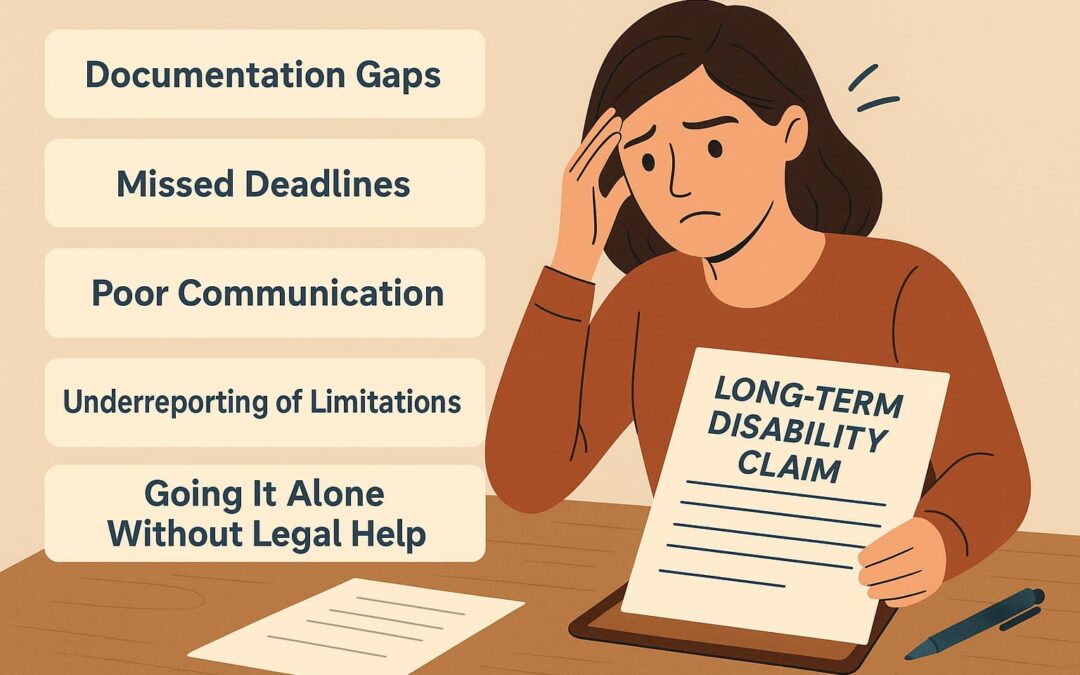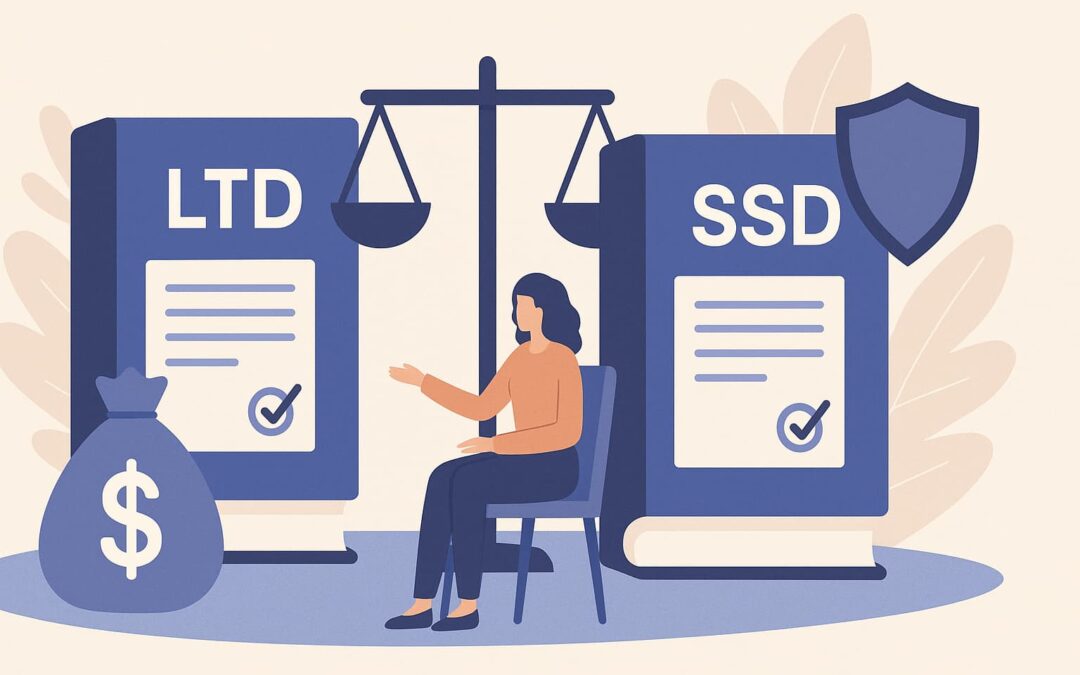Long-term care insurance (LTC insurance) helps cover the cost of care when age, illness, or disability makes it hard to manage daily activities alone. Filing a claim isn’t as simple as submitting paperwork. It often involves meeting specific rules, providing strong evidence, and knowing exactly what your policy says. There are several things to consider before you file an LTC claim under your policy, and skipping over even one detail could lead to a delay or denial.
Read on to learn how to review your coverage, gather solid documentation, and watch for common claim mistakes. You’ll also discover how an LTC attorney can support you if the insurance company pushes back.
If you’re unsure what steps to take next and need immediate help, reach out to a long-term care lawyer near you for tailored guidance based on your situation.
What Exactly Does Your LTC Policy Cover?
 Before you file a long-term care (LTC) claim, review your policy closely to know exactly what kind of care it pays for—and what limits apply. Many people assume their coverage includes every type of long-term support, but that’s rarely the case. Each policy outlines specific benefits, sets timeframes for coverage, and lists exclusions that can stop a claim cold.
Before you file a long-term care (LTC) claim, review your policy closely to know exactly what kind of care it pays for—and what limits apply. Many people assume their coverage includes every type of long-term support, but that’s rarely the case. Each policy outlines specific benefits, sets timeframes for coverage, and lists exclusions that can stop a claim cold.
Understanding these key points helps you avoid surprises and prepare the strongest claim possible.
Understanding Policy Benefits and Limitations
Most LTC policies help cover care for people who can’t manage basic daily tasks due to age, illness, or injury. But they don’t all cover the same types of care.
- Home Care: This includes help from visiting nurses, personal aides, or therapists who assist you at home. Policies may cover part-time or full-time in-home support, or even an hour each day, depending on the situation and policy.
- Assisted Living Facilities: If you need regular help but not full-time medical care, an assisted living facility might be appropriate. Some policies cover these services if the facility meets certain standards.
- Nursing Homes: For people who need more supervision or medical care, nursing home coverage may apply. This tends to be the most expensive form of care, and some policies set limits on how long it will be covered.
Your plan also includes rules about how long benefits last. This is known as the benefit period—which might be two years, five years, or even unlimited, depending on your policy. There’s usually a daily or monthly limit on how much the insurance will pay.
Also, most policies come with a waiting period, often called an elimination period. During this time—usually 30, 60, or 90 days—you must pay out-of-pocket before your benefits begin. You only receive payments after this period ends and the insurer confirms your eligibility.
How to Identify Exclusions in Your Policy
Exclusions are the hidden traps in many LTC insurance policies. These are conditions, types of care, or circumstances the policy won’t cover.
Look out for:
- Non-licensed Care Providers: If care is given by family or unlicensed aides, the insurer may reject the claim—even if the care is necessary.
- Out-of-Network or Unapproved Facilities: Some policies require that care be provided by facilities that meet specific licensing or state approval standards.
- Mental Health or Addiction Treatments: Not all policies cover psychiatric or substance use-related care.
Use a highlighter or make notes when reading your policy. Pay close attention to any paragraph that starts with “This policy does not cover…” or “Exclusions include…”. These sections could affect your claim down the road.
If any part of your policy seems unclear or full of insurance jargon, consider reaching out to a lawyer familiar with long-term care claims. That way, you don’t make decisions based on guesswork or vague wording.
Determining If Your Care Needs Match Your Coverage
Insurance companies don’t just take your word for it. They check to see if your current condition meets the standards set by your policy.
- Qualifying Conditions: Some policies require that you have a condition that limits your ability to perform certain tasks, although this is uncommon.
- ADLs (Activities of Daily Living): This usually refers to six key tasks—bathing, dressing, eating, toileting, transferring (getting in and out of bed/chair), and maintaining continence. If you need help with two or more, your policy may kick in. Each policy is different, and the ADLs and how many you must need substantial assistance with can vary.
- Cognitive Impairment: If memory issues or conditions like dementia put you at risk, many policies will provide coverage even if you can still handle ADLs.
Review how your policy defines these terms. The insurance company will use them to decide whether to approve your claim.
Common Reasons for LTC Claim Denials
Even valid claims sometimes get denied. Insurers often look for any reason to say no. Knowing the usual traps can help you avoid them.
- Documentation Deficiencies: Missing records, vague medical notes, or incomplete forms give the insurance company room to reject your claim.
- Biased Benefit Eligibility Assessments (BEAs): The insurance company will sometimes send you for a BEA. They are often completed by a nurse virtually and fail to fully present you or your loved one’s medical conditions and policy needs.
- Failure to Meet Benefit Triggers: If your doctor doesn’t clearly state that you need help with specific ADLs or you haven’t shown cognitive decline through a formal test, you might miss the threshold.
- Policy Lapse Issues: If payments weren’t kept up, the company may say your policy is no longer active—even if the lapse was accidental or caused by illness.
- Facility Certification Problems: If care is being provided at a facility the policy doesn’t recognize as covered, the claim may get denied.
How Do You Properly Document Your LTC Claim?
Paperwork is everything in an LTC claim. Solid documentation supports your need for care and leaves less room for the insurer to argue.
Creating a Comprehensive Record of Your Condition
- Medical Records: Gather hospital records, test results, and physician treatment notes that clearly show your condition and care needs.
- Physician Statements and Chronically Ill Certifications: Your doctor should complete any required claim forms and write a letter explaining your needs and why LTC is appropriate. He or she should provide a CIC, or chronically ill certification.
- PAQ or Insured Forms: You may need to complete forms about your needs. Do not hesitate to attach additional pages explaining your needs and functionality, as this forms are often deceptively written and too generalized.
- Daily Care Logs: Keep a daily journal tracking what help you need, who provides it, and how often. These logs show how your condition affects your daily life over time.
Documenting Communication with Your Insurance Company
- Written Correspondence: Keep every email and letter. If a conversation happens by phone, ask for follow-up in writing.
- Phone Call Documentation: When calls happen, jot down the date, time, the name of the person you spoke with, and a summary of what was said.
- Timeline Maintenance: Keep a calendar or spreadsheet showing when documents were sent, calls made, and responses received. This helps prove delay tactics if the company stalls.
When Should You Begin the Claims Process?
Timing matters. Wait too long, and you may lose benefits. Start too soon, and the insurance company might deny you outright.
Understanding the Critical Timeline
- Elimination Periods: Most policies won’t pay benefits until care has been received for a set number of days—often 30, 60, or 90.
- Strategic Submission: Don’t wait for conditions to worsen. Once you or a caregiver sees that care needs will last beyond the waiting period, it’s time to start collecting paperwork and setting up a claim.
- Urgent Situations: If care starts after a hospital stay or due to a sudden decline, don’t delay. Acting quickly helps prevent the insurer from arguing that your condition doesn’t meet the requirements.
Preparing for Care Before Benefits Begin
- Financial Planning: Make a plan for paying care costs during the waiting period. This may involve savings, short-term insurance, or help from family.
- Interim Care Options: Some people use in-home help or outpatient services while waiting for full benefits to start.
- Early Documentation: Start collecting care logs, medical records, and receipts right away, even if the insurance company won’t reimburse those days.
The Claims Filing Process Explained
Filing a claim usually means following a set of steps and sending in specific forms. Small mistakes can cause long delays.
- Initial Contact (Consult your policy): Let your insurance company know that you plan to file and see how to submit proof of loss under your policy. Ask what forms they need and where to send them.
- Complete the Paperwork: Fill out every part of the forms and ask your doctor to submit their statements.
- Submit Proof: Send copies of medical records, daily care logs, and anything that shows you meet the policy’s requirements.
- Avoid Pitfalls: Leaving out documents, using vague language, or missing deadlines gives the insurance company a reason to push back.
- Timeline Expectations: Claims can take weeks or even months to process. Regular follow-ups help keep things moving.
What Are Your Rights When Dealing with Insurance Companies?
Insurers don’t always act in good faith. They may drag their feet, ask for more documents again and again, or deny a claim without real reason. This is especially true in the long-term care setting where these claims are a “closed block” for insurers.
Understanding Bad Faith Insurance Practices
Bad faith happens when an insurance company fails to handle your claim fairly. Tactics may include:
- Denying valid claims
- Ignoring submitted documentation
- Offering less than what the policy promises
- Delaying payment when they have sufficient evidence to pay the claim
Most states have laws protecting insureds from these tactics.
Your Legal Options When Dealing with Delays or Denials
- Internal Appeals: Policies or even the insurance companies will voluntarily offer a review process where you can contest a denial by submitting more documentation or requesting another look. Whether or not you should participate is a question to take to a long-term care insurance lawyer. Appeals are not required in many circumstances.
- External Reviews: If you decide to appeal and the appeal fails, you may have the right to a third-party review depending on your state.
- Time Limits: Every state sets deadlines for filing legal claims. Waiting too long can close the door on your case.
- Possible Compensation: If the insurer acts unfairly, you may recover attorney fees, interest, or additional damages.
How an Experienced LTC Attorney Can Help
When things go sideways—or you just want to avoid problems from the start—an attorney who works with LTC claims can support you every step of the way.
- Policy Review: Attorneys can explain what your policy really says and whether it supports your claim.
- Documentation Support: They help collect and prepare all necessary records, doctor statements, and logs.
- Insurance Company Interaction: Attorneys handle calls, letters, and pushback from the insurance company so you don’t have to.
- Appeals Representation: If your claim gets denied, they can take over the appeal process if appealing makes sense and present a stronger case.
- Litigation When Necessary: When the insurance company refuses to pay what’s owed, attorneys can take legal action.
- Case Examples: Sandstone Law Group has helped many clients in situations like yours. For example, one client’s claim was denied due to a BEA even though their physicians supported the need for policy benefits. Our team showed the evidence and helped that client recover full benefits.
Questions to Ask Before Hiring an LTC Attorney
Not every attorney handles LTC claims regularly. Here’s how to find one who fits your needs.
- What experience do you have with LTC claims? Ask how many LTC cases the attorney has handled. Request examples of past outcomes, without needing personal client details. Make sure they explain the process clearly and let you ask questions.
- What is your fee structure? Some attorneys charge only if they recover benefits; others bill hourly. Ask about costs like medical record fees or court filing charges. A good attorney can explain how their help adds value and increases your chance of success.
Contact Our LTC Lawyers Now
Don’t wait too long to get the support you need. LTC insurance claims involve strict deadlines and detailed paperwork. Sandstone Law Group understands how insurers think and how to hold them to their promises.
We offer a free consultation and policy review so you can get answers without any cost upfront. During your first meeting, we’ll review your situation, explain your policy in plain terms, and go over what steps come next.
Call us now at 602-615-0050 or fill out our contact form to schedule your free consultation. Let’s help you move forward with confidence.







